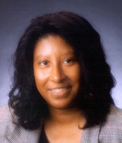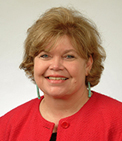TEACHING CURRICULUM
WORKSHOP CHAIRS
Vickie M. Mays, Ph.D., M.S.P.H.
Professor of Psychology
Professor of Health Services, UCLA School of Public Health
Director, UCLA Center for Research, Education, Training and Strategic Communication on Minority Health Disparities
 Dr. Mays is a Professor in the Department of Psychology in the College of Letters and Sciences, as well as a Professor in the Department of Health Services. Professor Mays is also the Director of the UCLA Center on Research, Education, Training and Strategic Communication on Minority Health Disparities. She teaches courses on health status and health behaviors of racial and ethnic minority groups, research ethics in biomedical and behavioral research in racial/ethnic minority populations, research methods in minority research, as well as courses on social determinants of mental disorders and psychopathology. Professor Mays' research primarily focuses on the mental and physical health disparities affecting racial and ethnic minority populations. She has a long history of research and policy development in the area of contextual factors that surrounding HIV/AIDS in racial and ethnic minorities. Other areas of research include looking at the role of perceived and actual discrimination on mental and physical health outcomes, particularly as these factors impact downstream disease outcomes. Her mental health research examines availability, access and quality of mental health services for racial, ethnic and sexual minorities. Dr. Mays developed and coordinated the New Orleans Mental Health Education and Training project after Hurricane Katrina. The purpose of this project was to 1) increase the capacity of mental health service providers and 2) train religious leaders from all denominations to recognize serious emotional distress and utilize local referrals. We will also conduct a workshop offering parents, teachers, and caretakers tips and helpful information to maximize the learning of children--many of whom are returning to school for the first time in a year.
Dr. Mays is a Professor in the Department of Psychology in the College of Letters and Sciences, as well as a Professor in the Department of Health Services. Professor Mays is also the Director of the UCLA Center on Research, Education, Training and Strategic Communication on Minority Health Disparities. She teaches courses on health status and health behaviors of racial and ethnic minority groups, research ethics in biomedical and behavioral research in racial/ethnic minority populations, research methods in minority research, as well as courses on social determinants of mental disorders and psychopathology. Professor Mays' research primarily focuses on the mental and physical health disparities affecting racial and ethnic minority populations. She has a long history of research and policy development in the area of contextual factors that surrounding HIV/AIDS in racial and ethnic minorities. Other areas of research include looking at the role of perceived and actual discrimination on mental and physical health outcomes, particularly as these factors impact downstream disease outcomes. Her mental health research examines availability, access and quality of mental health services for racial, ethnic and sexual minorities. Dr. Mays developed and coordinated the New Orleans Mental Health Education and Training project after Hurricane Katrina. The purpose of this project was to 1) increase the capacity of mental health service providers and 2) train religious leaders from all denominations to recognize serious emotional distress and utilize local referrals. We will also conduct a workshop offering parents, teachers, and caretakers tips and helpful information to maximize the learning of children--many of whom are returning to school for the first time in a year.
Felicia Schanche Hodge, Dr.PH (Wailaki)
Professor, UCLA School of Nursing
Professor, UCLA School of Public Health
Director, UCLA Center on American Indian & Indigenous Research and Education?
Website: http://www.nursing.ucla.edu/caire/
 Felicia Schanche Hodge, Dr.P.H., is currently a Professor in the UCLA School of Nursing and the School of Public Health. She is also the Chair of American Indian Studies at UCLA. With over 30 years of experience in Native health care research, her area of expertise is intervention design and implementation to reduce chronic health problems in Native populations. Several of Dr. Hodge's studies designed culturally appropriate educational materials and tested the "Talking Circle" group support approach to education. These culturally appropriate educational materials were designed to provide accurate information on diabetes, nutrition, cancer and the importance of exercise in a group support model of education. Dr. Hodge is the founder and director of the Center for American Indian & Indigenous Research and Education (CAIRE). CAIRE's priorities are: 1) the identification of barriers impeding optimal health care utilization, 2) the development and testing of culturally sensitive health and social service intervention models, and 3) the recruitment and retention of Native students into institutions of higher learning.
Felicia Schanche Hodge, Dr.P.H., is currently a Professor in the UCLA School of Nursing and the School of Public Health. She is also the Chair of American Indian Studies at UCLA. With over 30 years of experience in Native health care research, her area of expertise is intervention design and implementation to reduce chronic health problems in Native populations. Several of Dr. Hodge's studies designed culturally appropriate educational materials and tested the "Talking Circle" group support approach to education. These culturally appropriate educational materials were designed to provide accurate information on diabetes, nutrition, cancer and the importance of exercise in a group support model of education. Dr. Hodge is the founder and director of the Center for American Indian & Indigenous Research and Education (CAIRE). CAIRE's priorities are: 1) the identification of barriers impeding optimal health care utilization, 2) the development and testing of culturally sensitive health and social service intervention models, and 3) the recruitment and retention of Native students into institutions of higher learning.
Monique Smith, Psy.D. (Choctaw)
Administrative Clinical Director, United American Indian Involvement
 Dr. Monique Smith (Choctaw) has a Psy.D. in clinical psychology. She was the first American Indian to graduate with a doctorate degree from Pacific University?s School of Professional Psychology in Forest Grove, OR. Dr. Smith has an extensive background as a therapist working with American Indian children and adults. She has experience in assessment, evaluation, and crisis intervention in urban and rural American Indian communities. Dr. Smith has conducted research in her interest area, the utilization of mental health services among urban American Indians. She is currently the Administrative Clinical Director of United American Indian Involvement, Inc. Robert Sundance Family Wellness Center and Director of the Ah-No-Ven (healing) Home, a youth residential treatment facility for adolescent American Indian girls ages 14-17.
Dr. Monique Smith (Choctaw) has a Psy.D. in clinical psychology. She was the first American Indian to graduate with a doctorate degree from Pacific University?s School of Professional Psychology in Forest Grove, OR. Dr. Smith has an extensive background as a therapist working with American Indian children and adults. She has experience in assessment, evaluation, and crisis intervention in urban and rural American Indian communities. Dr. Smith has conducted research in her interest area, the utilization of mental health services among urban American Indians. She is currently the Administrative Clinical Director of United American Indian Involvement, Inc. Robert Sundance Family Wellness Center and Director of the Ah-No-Ven (healing) Home, a youth residential treatment facility for adolescent American Indian girls ages 14-17.
 Dr. Mays is a Professor in the Department of Psychology in the College of Letters and Sciences, as well as a Professor in the Department of Health Services. Professor Mays is also the Director of the UCLA Center on Research, Education, Training and Strategic Communication on Minority Health Disparities. She teaches courses on health status and health behaviors of racial and ethnic minority groups, research ethics in biomedical and behavioral research in racial/ethnic minority populations, research methods in minority research, as well as courses on social determinants of mental disorders and psychopathology. Professor Mays' research primarily focuses on the mental and physical health disparities affecting racial and ethnic minority populations. She has a long history of research and policy development in the area of contextual factors that surrounding HIV/AIDS in racial and ethnic minorities. Other areas of research include looking at the role of perceived and actual discrimination on mental and physical health outcomes, particularly as these factors impact downstream disease outcomes. Her mental health research examines availability, access and quality of mental health services for racial, ethnic and sexual minorities. Dr. Mays developed and coordinated the New Orleans Mental Health Education and Training project after Hurricane Katrina. The purpose of this project was to 1) increase the capacity of mental health service providers and 2) train religious leaders from all denominations to recognize serious emotional distress and utilize local referrals. We will also conduct a workshop offering parents, teachers, and caretakers tips and helpful information to maximize the learning of children--many of whom are returning to school for the first time in a year.
Dr. Mays is a Professor in the Department of Psychology in the College of Letters and Sciences, as well as a Professor in the Department of Health Services. Professor Mays is also the Director of the UCLA Center on Research, Education, Training and Strategic Communication on Minority Health Disparities. She teaches courses on health status and health behaviors of racial and ethnic minority groups, research ethics in biomedical and behavioral research in racial/ethnic minority populations, research methods in minority research, as well as courses on social determinants of mental disorders and psychopathology. Professor Mays' research primarily focuses on the mental and physical health disparities affecting racial and ethnic minority populations. She has a long history of research and policy development in the area of contextual factors that surrounding HIV/AIDS in racial and ethnic minorities. Other areas of research include looking at the role of perceived and actual discrimination on mental and physical health outcomes, particularly as these factors impact downstream disease outcomes. Her mental health research examines availability, access and quality of mental health services for racial, ethnic and sexual minorities. Dr. Mays developed and coordinated the New Orleans Mental Health Education and Training project after Hurricane Katrina. The purpose of this project was to 1) increase the capacity of mental health service providers and 2) train religious leaders from all denominations to recognize serious emotional distress and utilize local referrals. We will also conduct a workshop offering parents, teachers, and caretakers tips and helpful information to maximize the learning of children--many of whom are returning to school for the first time in a year. Felicia Schanche Hodge, Dr.P.H., is currently a Professor in the UCLA School of Nursing and the School of Public Health. She is also the Chair of American Indian Studies at UCLA. With over 30 years of experience in Native health care research, her area of expertise is intervention design and implementation to reduce chronic health problems in Native populations. Several of Dr. Hodge's studies designed culturally appropriate educational materials and tested the "Talking Circle" group support approach to education. These culturally appropriate educational materials were designed to provide accurate information on diabetes, nutrition, cancer and the importance of exercise in a group support model of education. Dr. Hodge is the founder and director of the Center for American Indian & Indigenous Research and Education (CAIRE). CAIRE's priorities are: 1) the identification of barriers impeding optimal health care utilization, 2) the development and testing of culturally sensitive health and social service intervention models, and 3) the recruitment and retention of Native students into institutions of higher learning.
Felicia Schanche Hodge, Dr.P.H., is currently a Professor in the UCLA School of Nursing and the School of Public Health. She is also the Chair of American Indian Studies at UCLA. With over 30 years of experience in Native health care research, her area of expertise is intervention design and implementation to reduce chronic health problems in Native populations. Several of Dr. Hodge's studies designed culturally appropriate educational materials and tested the "Talking Circle" group support approach to education. These culturally appropriate educational materials were designed to provide accurate information on diabetes, nutrition, cancer and the importance of exercise in a group support model of education. Dr. Hodge is the founder and director of the Center for American Indian & Indigenous Research and Education (CAIRE). CAIRE's priorities are: 1) the identification of barriers impeding optimal health care utilization, 2) the development and testing of culturally sensitive health and social service intervention models, and 3) the recruitment and retention of Native students into institutions of higher learning. Dr. Monique Smith (Choctaw) has a Psy.D. in clinical psychology. She was the first American Indian to graduate with a doctorate degree from Pacific University?s School of Professional Psychology in Forest Grove, OR. Dr. Smith has an extensive background as a therapist working with American Indian children and adults. She has experience in assessment, evaluation, and crisis intervention in urban and rural American Indian communities. Dr. Smith has conducted research in her interest area, the utilization of mental health services among urban American Indians. She is currently the Administrative Clinical Director of United American Indian Involvement, Inc. Robert Sundance Family Wellness Center and Director of the Ah-No-Ven (healing) Home, a youth residential treatment facility for adolescent American Indian girls ages 14-17.
Dr. Monique Smith (Choctaw) has a Psy.D. in clinical psychology. She was the first American Indian to graduate with a doctorate degree from Pacific University?s School of Professional Psychology in Forest Grove, OR. Dr. Smith has an extensive background as a therapist working with American Indian children and adults. She has experience in assessment, evaluation, and crisis intervention in urban and rural American Indian communities. Dr. Smith has conducted research in her interest area, the utilization of mental health services among urban American Indians. She is currently the Administrative Clinical Director of United American Indian Involvement, Inc. Robert Sundance Family Wellness Center and Director of the Ah-No-Ven (healing) Home, a youth residential treatment facility for adolescent American Indian girls ages 14-17.